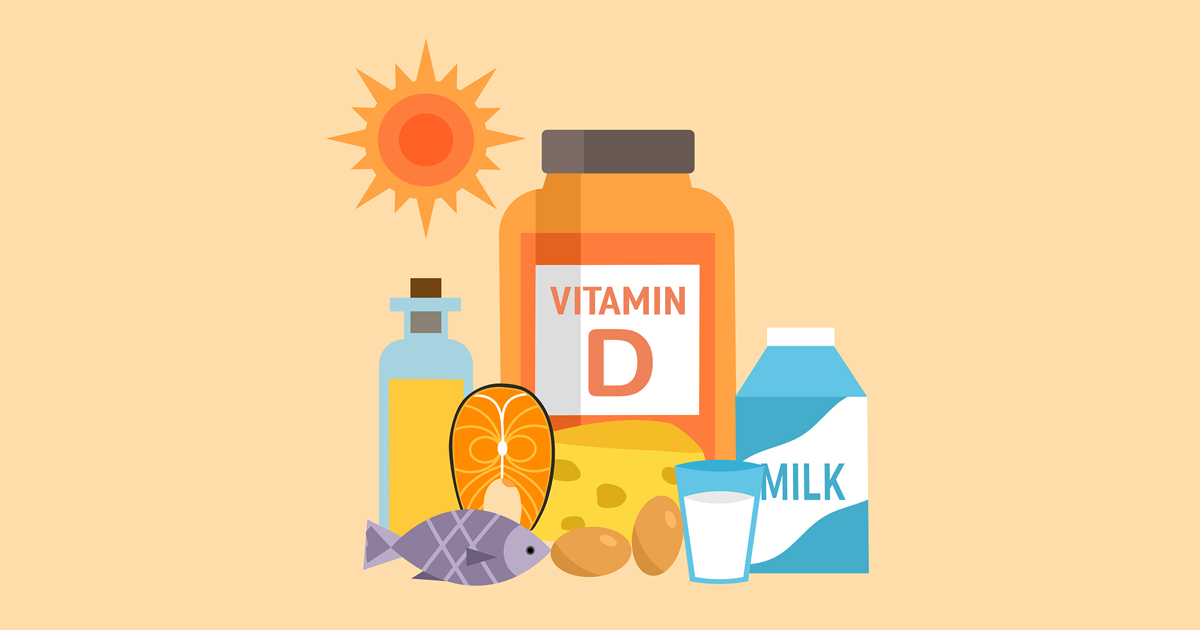Vitamin D, which is important for healthy bones, may be beneficial to the immune system and other systems. The body produces vitamin D in reaction to exposure to sunlight. In addition, consuming specific foods or supplementing with vitamin D can help someone boost their consumption of the vitamin.
Vitamin D is important for healthy teeth and bones. Moreover, it serves a number of other vital roles in the body, including as regulating inflammation and immune response. Vitamin D is a hormone or prohormone, not a vitamin, despite what its name might suggest.
In this article, we’ll examine the benefits of vitamin D, the effects of inadequate vitamin D intake on the body, and suggestions for increasing vitamin D intake.
Benefits of vitamin D
Vitamin D may Fight Disease
Research indicates that vitamin D may be involved in: in addition to its main advantages;
- Lowering the risk of developing multiple sclerosis (MS): Low vitamin D levels have been related to a higher risk of multiple sclerosis, according to a 2018 analysis of population-based studies.
- Supporting the immunological system: Lack of vitamin D may raise a person’s chance of getting sick and developing autoimmune conditions like type 1 diabetes, rheumatoid arthritis, and inflammatory bowel disease.
- Decreasing the probability of severe illnesses: Vitamin D may reduce the likelihood of developing COVID-19 infections and the severe flu. According to a recent research, acute respiratory distress syndrome is exacerbated by low vitamin D levels .
- Reduce the likelihood of developing heart disease: Heart problems like hypertension, heart failure, and stroke have been related to higher risks when vitamin D levels are low. Yet it’s not clear if a vitamin D deficit causes heart disease or only signals ill health when you have a chronic problem.
Strong Bones
For proper bone mineralization to occur, vitamin D helps maintain optimal blood levels of calcium and phosphorus by promoting intestinal calcium absorption. Children with rickets, which is brought on by vitamin D deficiency and results in the weakening of the bones, may appear to have bowlegged legs. Comparable symptoms of vitamin D insufficiency in adults include osteomalacia. Poor bone density and weak muscles are effects of osteomalacia.
It could help with Weight Loss
Low vitamin D levels are more likely to occur in those with heavier bodies. In an earlier study, participants who took regular calcium and vitamin D supplements shed more pounds than those who took a control. The researchers hypothesize that the additional calcium and vitamin D may have had an influence on appetite suppression.
Although there seems to be a connection between vitamin D and weight, current evidence does not support the concept that vitamin D would lead to weight loss.
Vitamin D might control Mood and lessen Depression
Vitamin D may be important for regulating mood and lowering the risk of depression, according to research. According to a review of individuals, those who took vitamin D supplements and reported having negative feelings saw an improvement in their symptoms. Those who are vitamin D deficient and experience depression may benefit from vitamin D supplements. Low vitamin D levels were linked in a different study to more severe fibromyalgia symptoms, anxiety, and depression.
Deficiency
Despite the fact that the body can produce vitamin D, some people are more susceptible to a deficit than others. The following factors can have an impact on this:
- Skin pigmentation: The body’s capacity to absorb ultraviolet B (UVB) radiation from the sun is decreased by skin pigmentation. Sunlight absorption is necessary for the skin to synthesize vitamin D.
- Lack of exposure to the sun: Individuals who reside in northern latitudes, highly polluted locations, work night shifts, or are housebound should try to get as much vitamin D from food sources as they can.
- Individuals who cannot absorb fat due to medical conditions: Being fat-soluble, vitamin D requires the gut to absorb dietary fats in order to be ingested. Low levels of vitamin D in the diet can be caused by conditions that restrict fat absorption.
- Obese individuals: Body fat accumulation can restrict the body’s ability to absorb vitamin D from the skin.
- Breastfeeding: The American Academy of Pediatrics advises giving 400 international units (IU) of oral vitamin D per day to all breastfed newborns.
- Older adults: Age reduces the skin’s capacity to manufacture vitamin D. Those who are older may also spend more time inside.
Symptoms of Vitamin D Deficiency
Most persons with a vitamin D deficiency don’t exhibit any symptoms. However, a persistent deficiency can result in hyperparathyroidism, a condition in which the parathyroid glands produce an unbalanced hormone that boosts the blood calcium levels, and hypocalcemia, a condition in which there is a calcium insufficiency.
Secondary symptoms brought on by these illnesses include:
- Bone weariness and pain
- Twitching muscles and weakness
- Fragility of the bones, particularly in older people
- Osteoporosis
- Myalgias, often known as muscle or joint discomfort, and arthralgias
If vitamin D shortage lasts for a long time, consequences could include:
- Cardiovascular issues
- Infections and neurological conditions
- Autoimmune conditions
- Certain malignancies, such as those of the breast, prostate, and colon
- Pregnancy-related issues
Vitamin D-rich Foods
Certain foods naturally contain vitamin D, while others have been fortified with it.(Trusted source)
- Cod liver oil
- Beef liver
- Egg yolk
- Shrimp
- Salmon
- Sardines
- Herring
- Canned tuna
- Regular mushrooms and those treated with ultraviolet light
- Milk (fortified)
- Certain cereals and oatmeal (fortified)
- Yogurt (fortified)
- Orange juice (fortified)

Infants’ Vitamin D Needs
There is a phase of fast bone growth during infancy and childhood. As a result, it’s critical that babies consume enough vitamin D. Prolonged vitamin D deficiency can result in rickets, a weakening of the bone tissues that can result in abnormal bone and joint development.
Lack of vitamin D has also been linked to children’s hypertension and high blood pressure. A 2018 study discovered a potential link between children’s artery wall stiffness and low vitamin D levels.
Vitamin D in Pregnancy
According to a review published in 2019, women who are pregnant and have vitamin D deficiency may be at an increased risk of preeclampsia and preterm delivery. Also another certain studies suggests that gestational diabetes is linked to low vitamin D levels. The risk of asymptomatic bacterial vaginosis in pregnant women may be decreased by treating vitamin D insufficiency. However, contradictory studies failed to connect vitamin D intake to the avoidance of bacterial vaginosis.
Final Message
The advantages of vitamin D are numerous. It could also aid in weight control, mood improvement, and a reduction in the symptoms of depression.
You may want to consult a doctor for a blood test and think about taking a vitamin D supplement because it’s difficult to get enough vitamin D from diet alone.
